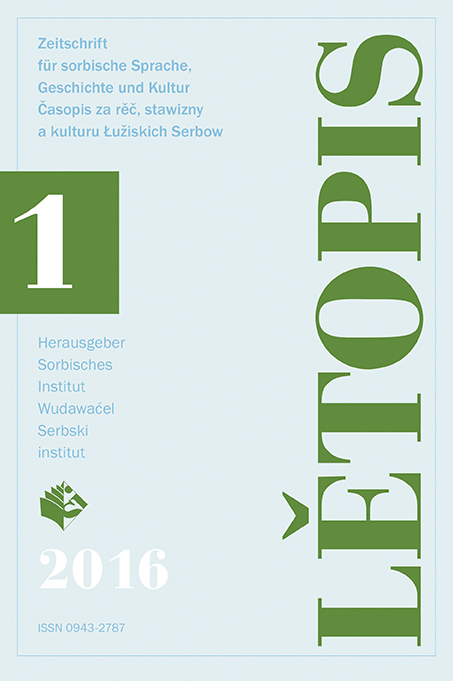Beschlagnahmt, vernichtet, verlagert, verschollen.
Confiscated, Destroyed, Removed, Lost.
The Odyssey of Wendish Literature in the Second World War
Author(s): Michael RichterSubject(s): History
Published by: Domowina-Verlag GmbH / Ludowe nakładnistwo Domowina
Keywords: wendische Literatur; Zweiter Weltkrieg; Nationalsozialismus; Verbot; Konfiszierung; Vernichtung; Wendenabteilung; Amtshauptmannschaft Bautzen; Transport; Verlagerung; Rote Armee; Russland; Domowina
Summary/Abstract: In the context of the suppression of Wendish identity by the National Socialists the banning of Domowina activity in 1937 set in motion a phase of intentional ‘Germanisation’ of the Wends involving a denial of their ethnic identity. From 1940, however, the dominant view in the NS leadership developed into one, which regarded the Wends not as Germans but as ‘inferior Slavs’. In both phases, if for different reasons, the whole of Wendish literature was confiscated with a view to destroying it. While up until 1940 it was a question of destroying references to the Wends as Slavs, from May 1940 the literature of the Wends was supposed to be withdrawn from circulation, before those parts of the Wendish population, who were regarded as being ‘incapable of being germanised’, were to be deported to the General Government of Poland. As the change in policy was to remain secret until the ‘final victory’, no interruption in the confiscation of Wendish literature was discernible. Both phases were however linked to two different institutions. While the ‘Wend Department’ in the office of the regional government played a decisive role until 1940, from 1940 the ‘Publication Office’ in Berlin-Dahlem took over responsibility, initially under the Interior Ministry, but from 1944 it came under the direct control of the Reichsführer of the SS.
- Issue Year: 2016
- Issue No: 1
- Page Range: 21-35
- Page Count: 15
- Language: German
- Content File-PDF

